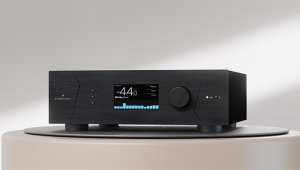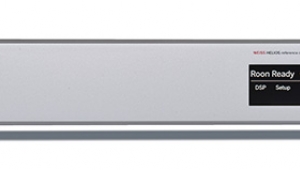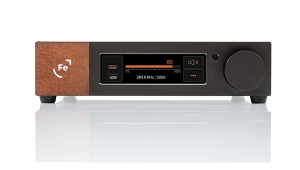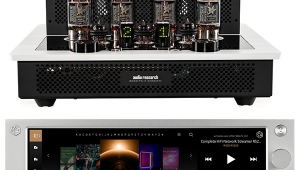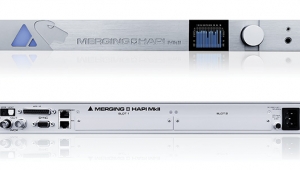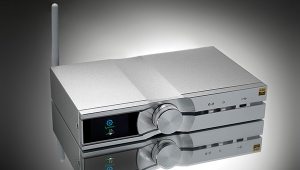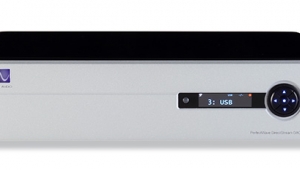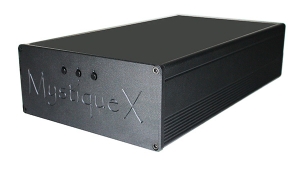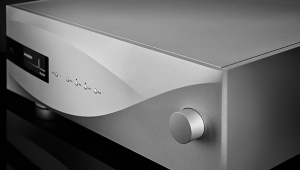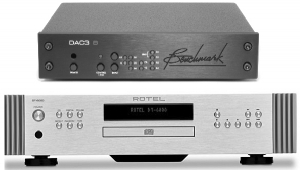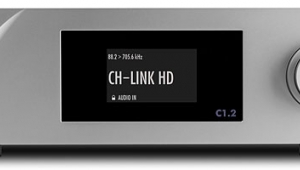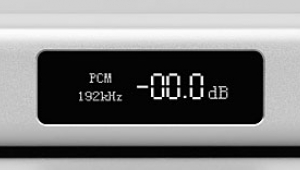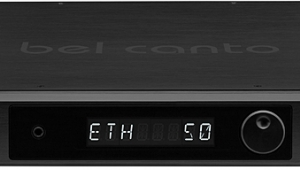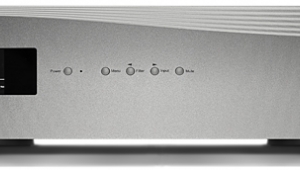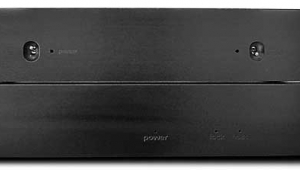| Columns Retired Columns & Blogs |
Audio Alchemy Digital Decoding Engine v1.0 Sam Tellig October 1992
Sam Tellig wrote about the Digital Decoding Engine in October 1992 (VOl.14 No.10):
Would you believe $399 for a digital processor?
Now this is my kind of product. I'm a real cheapskate when it comes to anything digital, because the technology changes so fast. Think about it: your new $3000 processor will likely be superseded in six months or so by a Mk.II or III version; if you only paid $399 for your Alchemy, you won't be too worried when v2.0 comes out. If you do want to spend big bucks on hi-fi, do something sensible like buy a pair of Quicksilver Silver mono amps, or a Jadis Defy 7, or a VAC amp. Or get a better pair of speakers.
Digital should be done cheap.
First there was the Digilog processor from Musical Fidelity in Britain. No longer available even in Britain, it was an excellent unit for the money. If you were lucky enough to get one, keep it. Then there was the $995 Meridian 203 Bitstream processor—good-sounding unit, but maybe not the biggest bargain on the market.
On the basis of bang for the buck, I think Audio Alchemy knocks out the Meridian decisively. The performance is at least as good in most areas, perhaps better in some, and the thing sells for 60% less. Critics are oohing and aahing over the Alchemy even in Britain, where it sells for $600 while the Meridian 203 sells for $800. In other words, the Alchemy retails in England for three-fourths the price of the Meridian, while here it's two-fifths, and still the Britcrits in Hi-Fi News and Audiophile are raving over the Alchemy.
I'll skip the technostuff. The Alchemy is a Bitstream baby, and if it looks like something that might fit inside a car dashboard console, that's the idea. The thing is small. There is a coax in and a TosLink in (yech!). There are three idiot lights—I don't know and don't care what they do. Oh—and there's a phase-inversion switch, which I find very handy. If the sound isn't right—if there's a lack of air, if everything sounds compressed—then a flick of this switch will often set things right.
I brought the Alchemy over to Lou's house to put it up against Mike Moffat's Theta Basic—a $1995 multibit processor. The Theta won, particularly in the area of dynamics and soundstaging; the sound was bigger. But the Alchemy didn't disgrace itself. In fact, it has its own virtues: very good clarity, good low-level resolution, a lack of grittiness...plus very good retrieval of ambient information, especially when I used an IDOS, which I'll get to in a moment.
Does the Alchemy have any weaknesses? Sure. I didn't have the Meridian 203 on hand for a direct comparison, but I think the Meridian sounds slightly more delicate—refined. On the other hand, I think the Alchemy is more dynamic. It boogies better. Actually, the sound of the two units—the Meridian and the Alchemy—is quite close. But the price isn't—especially in the US, where the Alchemy carries no import penalty. Here's KK on the Alchemy, just in kase you missed Ken's write up in the July 1991 HFN/RR, dangling participle and all:
"Although costing nearly ten times as much, I used the Audio Research DAC-1 as a reference, and it did not embarrass the DDE."
Taking a cue from Ken, I compared the Alchemy's sound with the sound of my Philips CD60 player's on-board processor—no contest. The Alchemy had more air, more life, more dynamics, greater delicacy and detail. And the Philips CD60 is a well-respected player.
The DDE is my absolute first choice in a digital processor. It's cheap and it's good. To do better, you have to pay more than twice as much. And what would be my choice if you do want to pay more? That's easy: the Altis Audio DAP Reference for $2995, described as "the ultimate Bitstream." More on the Altis in a couple of months—but it easily surpasses the Alchemy in delicacy, detail, smoothness, and retrieval of ambient information.—Sam Tellig
Robert Harley returned to the DDE in October 1992 (Vol.15 No.10):
I auditioned the California Audio Labs Sigma, Sumo Theorem, Forté DAC 50, and PS Audio Digital Link II in relation to the $1495 Bitwise Musik System Zero and the $399 Audio Alchemy Digital Decoding Engine. Where do the four processors fall compared with a $1500 processor and the inexpensive DDE?
Starting with the DDE, it was no contest; all four processors were superior to the DDE, particularly in the treble. Although the DDE had good clarity and resolution—greater resolution than the Digital Link II—its hashy treble was a significant liability. Although I preferred the Forté DAC 50 to the DDE, the former's $990 price precludes a recommendation.
The most logical comparison is between the DDE and the $100-more-expensive Digital Link II. First, the Digital Link's build quality is far superior. Comparing the power supplies, for example, the Digital Link's is much larger and heavier, and has a high-quality locking connector. The DDE's supply has a mini-jack that momentarily shorts the supply rails to ground if the plug is inserted with the power supply plugged in. The Digital Link's full-sized chassis and high-quality RCA jacks add to its value. The DDE, however, has an absolute-polarity inversion switch and the ability to be upgraded through the I2S bus port.
In terms of sound quality, the Digital Link was clearly more musical. In virtually all areas—treble smoothness, soundstaging, bass, lack of grain, and involvement in the music—the Digital Link II was convincingly better. Again, the DDE had superior clarity and resolution, but its aggressive treble was its Achilles' heel.
The PS Audio Digital Link II may thus present a serious threat to the virtual monopoly on this market niche now enjoyed by the Audio Alchemy Digital Decoding Engine, newly reduced in price to $399.—Robert Harley
- Log in or register to post comments
